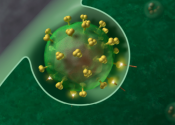Describing the genes associated with the sixth sense
To perform coordinated movements, we rely on special sensory neurons in our muscles and joints. Without them, the brain wouldn't know what the rest of our body was doing. A team led by Niccolò Zampieri has studied their ...
Dec 9, 2022
0
1834







